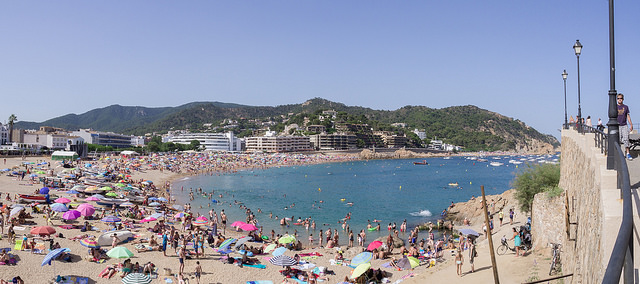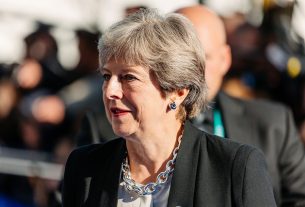British travellers will have to pay a fee to visit EU countries after Brexit, it was confirmed today.
The £6.30 (€7) levy will be payable every three years under the new European Travel Information and Authorization System (ETIAS) from 2021.
But there will be no visa requirements for British citizens travelling to EU countries for business, holidays or in transit elsewhere, says the European Commission.
UK nationals will join citizens of 61 other non-EU nations on the ‘non-visa’ list for travel within the bloc’s Schengen Zone for up to 90 days.
The new electronic ETIAS is the equivalent of the United States’ ESTA form and aims to tighten security amid an ongoing migrant crisis and the threat of terrorism.
British citizens will enjoy the same right to freedom of movement as other EU nationals until the end of the Brexit transition period on December 31, 2020.
After that, the ETIAS system will kick in and it could even be applied from March 29 next year if the UK leaves without a Brexit deal.
The EU says the ETIAS system will be available to British citizens on the basis that it will also be applied to EU nationals travelling to the UK.
That means any moves to impose visa requirements on EU citizens visiting Britain will almost certainly lead to Britons facing the same restrictions in Europe.
The EU says the ETIAS measure, which must be approved by the European Parliament and European Council is a ‘necessary and small procedural step.’
The online form will take around ten minutes to complete and the fee is payable by people aged from 18 to 70.
In addition to passport details, additional information required will include medical conditions and any criminal convictions.
More than 95 per cent of applications will be automatically approved within minutes, says the EU and provide unlimited 90-day entry to EU states for three years.
With Republic of Ireland citizens continuing to enjoy free movement in the EU, the new fee could ensure continued demand for Irish passports from UK citizens.
They are entitled to one if their parents or grandparents were born in Ireland and most Northern Ireland citizens also qualify automatically.
The Irish passport office says demand from UK citizens has shot up since the EU referendum in June 2016, with 81,000 applications received by the end of 2017.
Neale Richmond, chairman of the Irish Senate Brexit committee, said Brits made almost 45,000 Irish passport applications between January and May this year.




